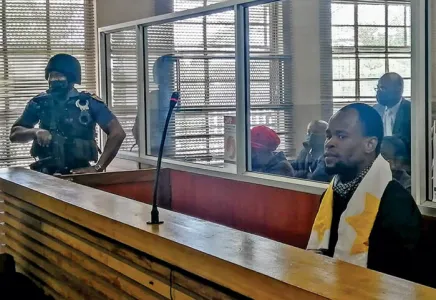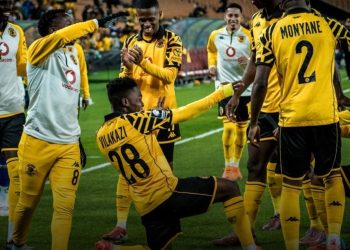The murder trial of soccer star Senzo Meyiwa took a gripping turn as lead investigator Brigadier Bongani Gininda testified about Constable Sizwe Zungu’s fears on the day of the killing. Gininda, under cross-examination in the Pretoria High Court, revealed that Zungu believed the accused were hitmen, which left him too scared to report their actions.
“He Was Too Scared”
Zungu, in earlier testimony, admitted to being at the Basotho Hostel in Vosloorus, Johannesburg, on the day of Meyiwa’s murder. According to his account, he noticed firearms in the possession of Mthobisi Mncube and Muzikawukhulelwa Sibiya and became suspicious when he discovered a state-issued firearm in one of their rooms. Despite these alarming observations, Zungu did not report his findings at the time.
When grilled by advocate Zandile Mshololo, who represents accused number five, Gininda confirmed Zungu’s hesitations.
“Did you ask him why he didn’t report it?” Mshololo pressed.
“Yes, I did,” Gininda replied. “He said he was scared because he viewed the accused as hitmen. That fear kept him from coming forward.”
A Defense Counterpoint
Mshololo countered by questioning the credibility of Zungu’s claims. Her client, Fisokuhle Ntuli, has denied any involvement in the crime, with defense witnesses suggesting Zungu’s fears were unfounded.
“The statement is clear that Zungu viewed them as hitmen,” Mshololo argued. “But isn’t that simply an assumption rather than evidence?”
A Tangle of Testimonies
The case grew murkier when Mshololo brought up Hawks detective Warrant Officer Meshack Makhubo, described by the defense as a state witness. Makhubo allegedly denied Ntuli’s involvement in Meyiwa’s murder. Gininda dismissed this, pointing out a lack of investigative evidence supporting Makhubo’s claim.
State prosecutor Charles Baloyi quickly refuted Mshololo’s assertion, clarifying that Makhubo was a defense, not a state, witness.
Trial Drama Continues
As the trial unfolds, the testimonies of witnesses like Zungu add layers of intrigue and complexity. His reluctance to report the accused on the day of the murder raises troubling questions about fear, loyalty, and justice in one of South Africa’s most high-profile cases.






















